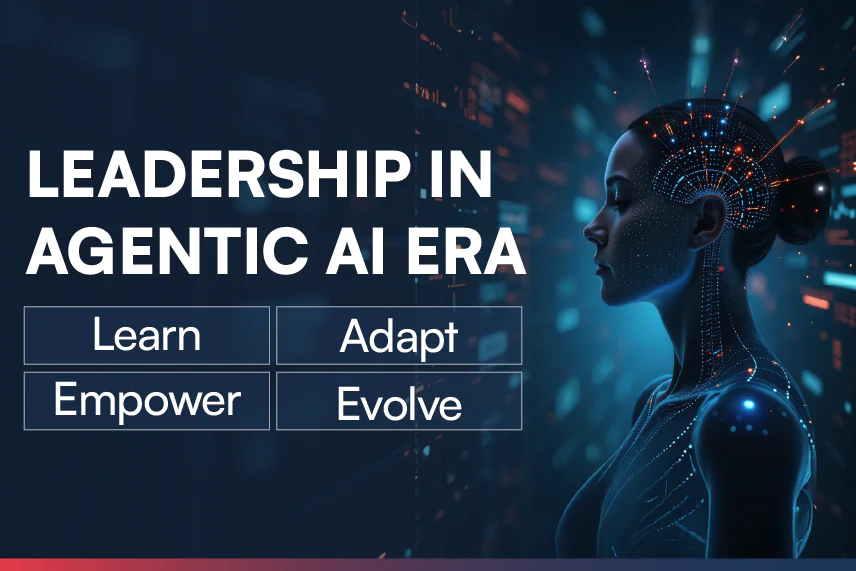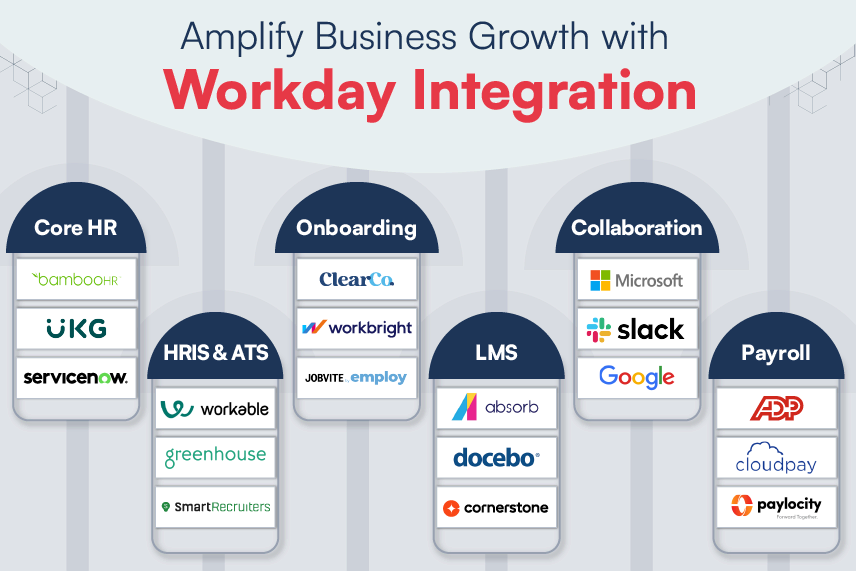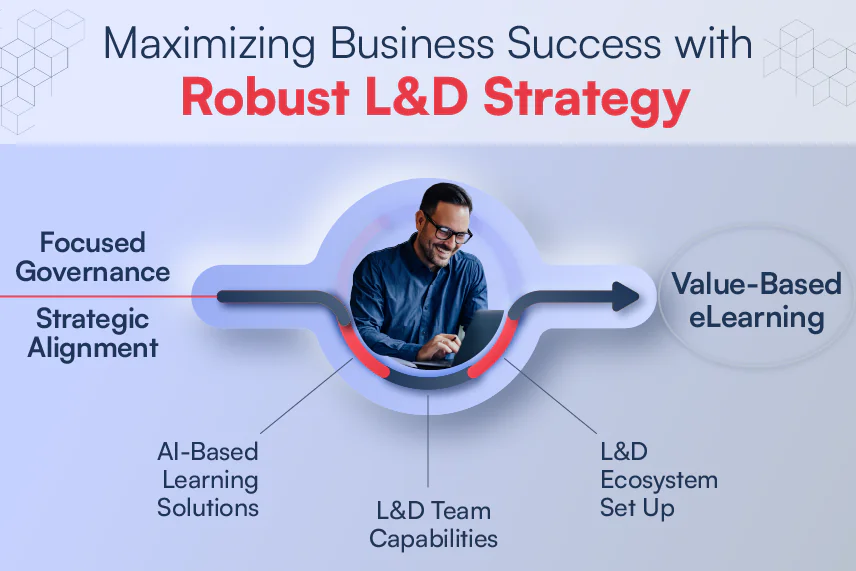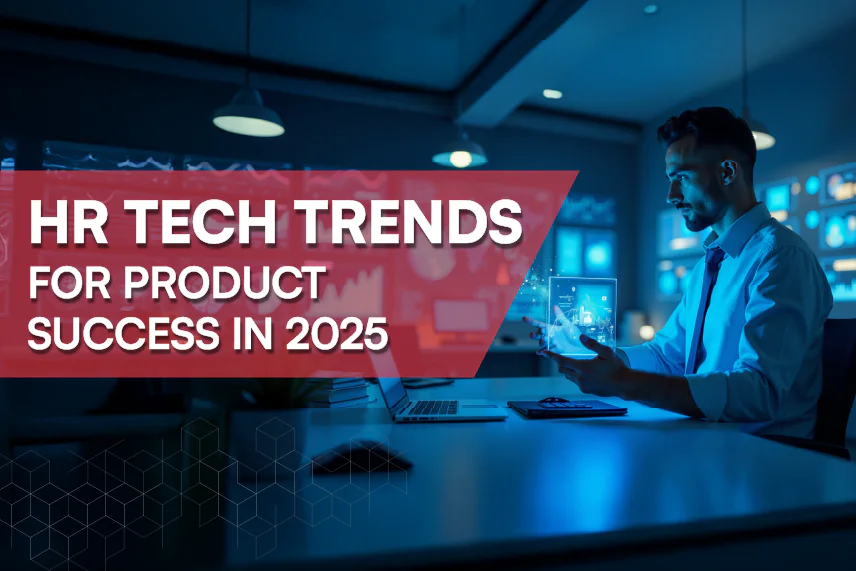
The global business environment is changing, and so is HR. The emergence of future tech has caused HR leaders to witness massive disruption in their overall operations. This has left them with less room to plan for action while the imperatives continue to increase. As the corporate world gradually moves back to normalcy post the pandemic, HR leaders constantly experience change and reevaluate their activities to keep the HR function aligned with company goals.
The future of work is continuing to be an integral part of the HR ecosystem, and the need, adoption, and usage of future tech is increasing exponentially. As per a report by Verified Market Research, the HRTech market size is projected to reach $38.36 billion by 2030.
There are a range of technologies that will be used for HR in the future. Whether it is AI, big data, machine learning, cloud, or automation, HR will leave no stone unturned to adopt technology and a data-driven approach to elevate HR management. According to PwC, 58% of companies use HRTech to find, attract, and retain top talent.
“There Is No Denying That The Way We Work Has Changed Dramatically. The Introduction Of HRTech Has Created A Dire Need For Businesses To Modernize The HR Function With The Most Applicable Future Tech.”
The world of HRTech is booming and making a significant difference in the HR industry. HRTech is not only working toward simplifying and streamlining HR processes, but also playing an important role in business decision-making.
Why HRTech Now?
As the pandemic accelerated, timelines for HR changed too. Business operations dramatically went virtual, and we soon had people working from home and not from their workstations.
Remote work and hybrid work are here to stay. With this change bringing in volatility, uncertainty, complexity, and ambiguity, it is highly recommended to implement the most effective and suitable HRTech.
As the way we work changes, HRTech will remain at the forefront of this change. It has the potential to shape the future of HR while playing an active role in simplifying various HR modules like recruitment, onboarding, strategic resource planning, compliance, and employee engagement.
Harbinger recently hosted a Power Hour on “How Technology will Help Shape the Future of HR.” This interactive virtual event was hosted by Ajay Todkar, Director, HRTech BizDev, Harbinger Group. Ajay was in conversation with the expert panelist Mitch Zenger, SVP, Workforce Strategy, M Squared Consulting.
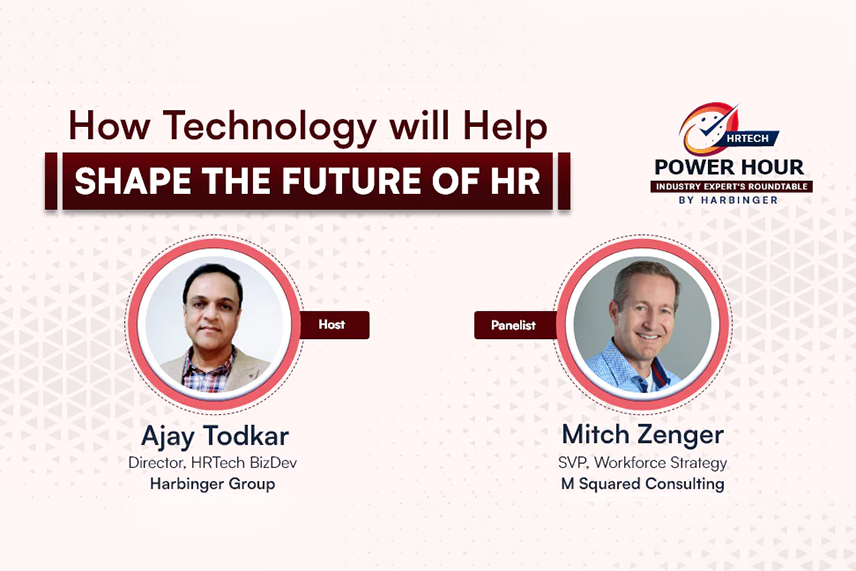
To reinforce the power of technology in the HR arena, the game plan of this exciting virtual event comprised six key focus areas:
- How the work environment is changing
- New Millennials and Gen Zs
- Workforce automation and transformation
- Teamwork – a new trend in HR
- Employee experience
- Future of work
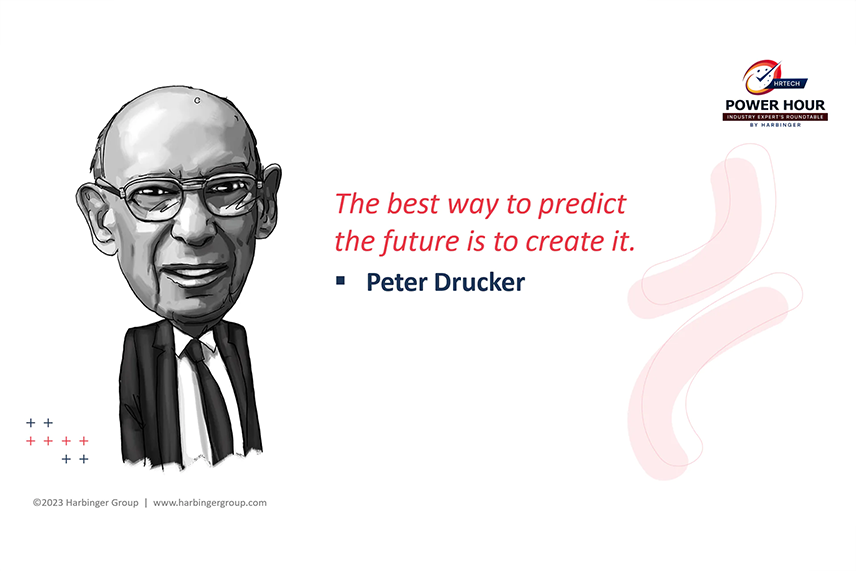
“The best way to predict the future is to create it.” As we focused our conversation on the future of HR, there was no better way to kickstart the virtual event other than this impactful quote by Peter Drucker.
Change at the Forefront
The pandemic did not just cause temporary disruptions, but also brought about structural changes in the way we work. The primary element of this change being digitalization, a higher number of businesses started taking a leap toward embracing the goodness of future tech to improve efficiency, reduce costs, and enhance employee experience. It is no surprise that HR too is a part of this change.
The images below display the pattern of changes taking place in both employers and employees.
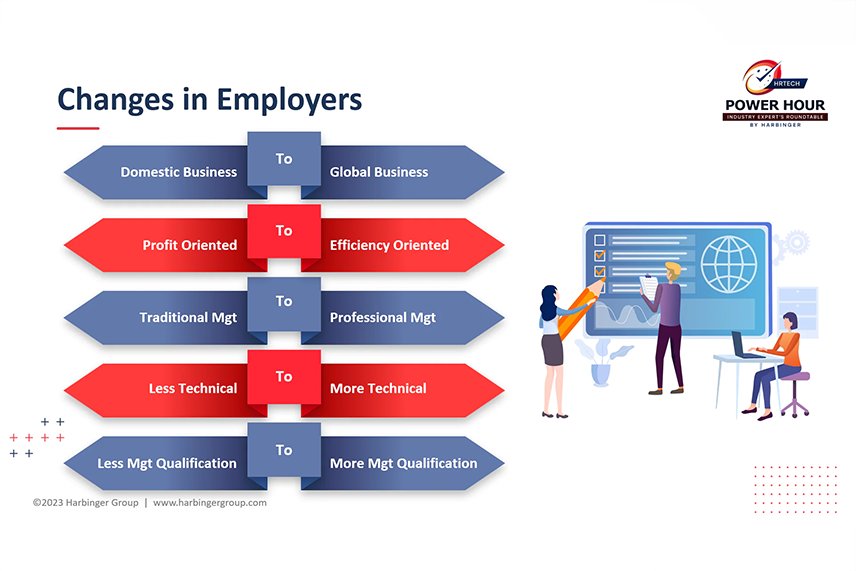
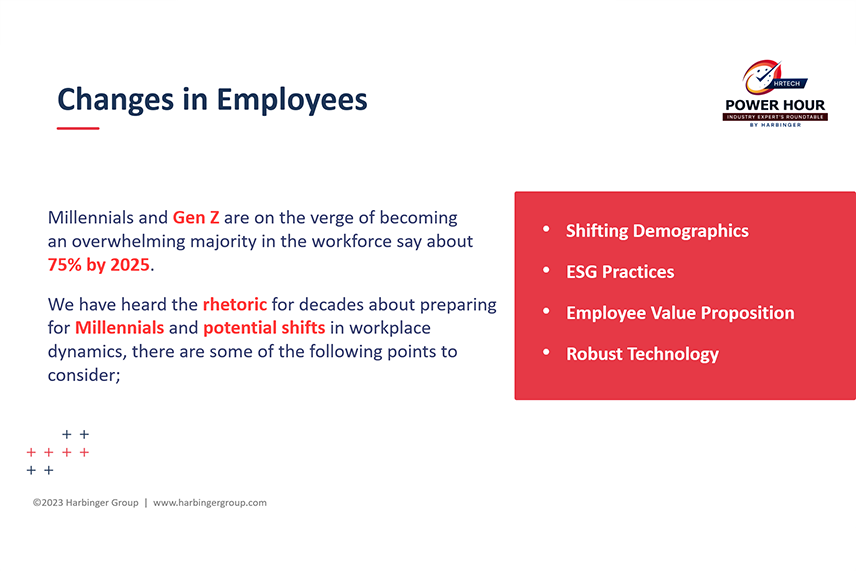
Importance of HRTech to Shore Up the Future of HR
HR is evolving into a more technology-based function as organizations are making future tech a part of their HR strategy. Today, an HR system stores hundreds of data points including employee profiles, performance reports, recruitment data, and so on that can significantly impact business decisions.
The aim of HR has mostly been to deal with people and provide their organization with the finest human capital. At the same time, HR is equally responsible for elements such as employee experience, training, and streamlining the employee lifecycle.
However, HR has often faced heightened demands to deliver an innovative and exceptional employee experience due to digitization, rapid evolution of technology, and fierce business competition. With growing business demands, there has also been an increased need for continuous modernization of HRTech. As a result, we see several businesses investing in AI, chatbot, machine learning, cloud, and intelligent automation to transform HR into an operating model of the future.
Automation Transforming Work Patterns
When we talk about HR, technology cannot be left behind. With people coming from different walks of life, from various demographics, technology still happens to be a paramount factor for consideration.
Ajay says automation is going to become the buzzword in terms of how:
- New tools are moving well beyond traditional emails and productivity
- Engagement and feedback applications are going to be used within an organization
- Performance management is going to be tracked, traced, and retrieved within an organization
In our virtual event, Ajay also shared the importance of decoding how employee wellbeing apps are going to be pushed, whether they are third-party apps or in-built apps, by organizations. Furthermore, he talked about how organizations are going to push for employee welfare and employee service platforms to make automation work for their business.
Teamwork Becoming the New Game Plan for HR
According to Mitch, the workforce is changing. We’ve moved from old scientific management models to management by objectives, Sig Sigma, and operating in an environment that encourages teamwork (future of work). And as the way we work keeps evolving, the major shift that is extremely prominent is how we have moved individual tasks to larger scale objectives to how to get precision and quality systems in place.
Given the roadmap ahead, and as work gets more complex, businesses need to be focused a lot more on teamwork, team skills, and people working together to make a significant difference.
He also shared with us an excellent and coherent piece of information that reads,
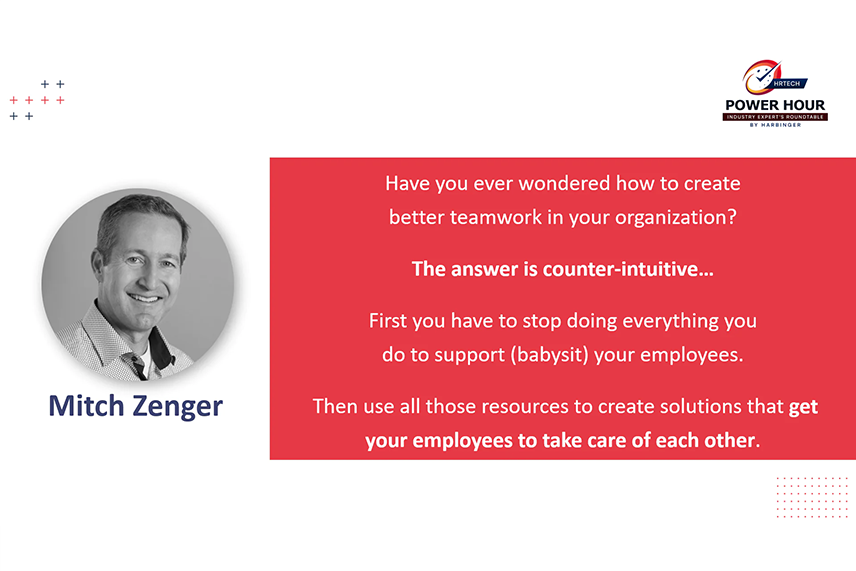
Moving ahead, Ajay and Mitch had an in-depth conversation on:
- How people are changing
- How the control is changing
- Hierarchy of team needs
- Future of work
- Feedback process in the future of work
- Employee experience
- Technology adaptation trends
Beyond HR
The term Human Resources has taken a whole new definition post the pandemic. With technology being at the forefront and remote and hybrid work models coming into play, the game is changing for HR. If you are a business looking forward to investing in HRTech to build a future-ready workforce and embrace change, the time is now!
Discuss your HRTech needs with our experts or learn about HRTech solutions by writing to us at contact@harbingergroup.com.


